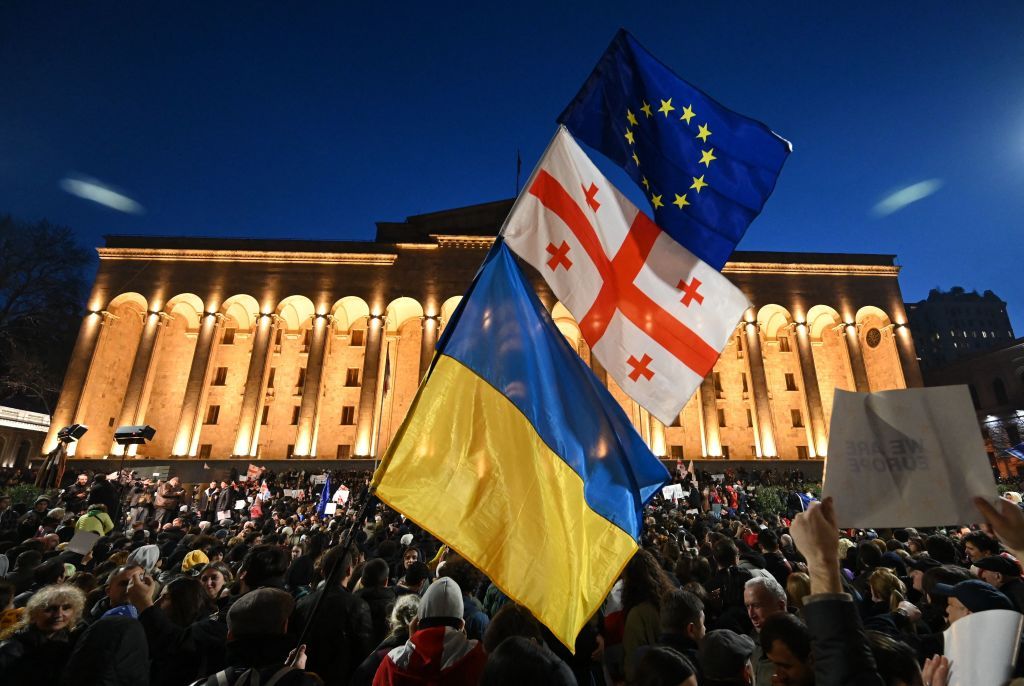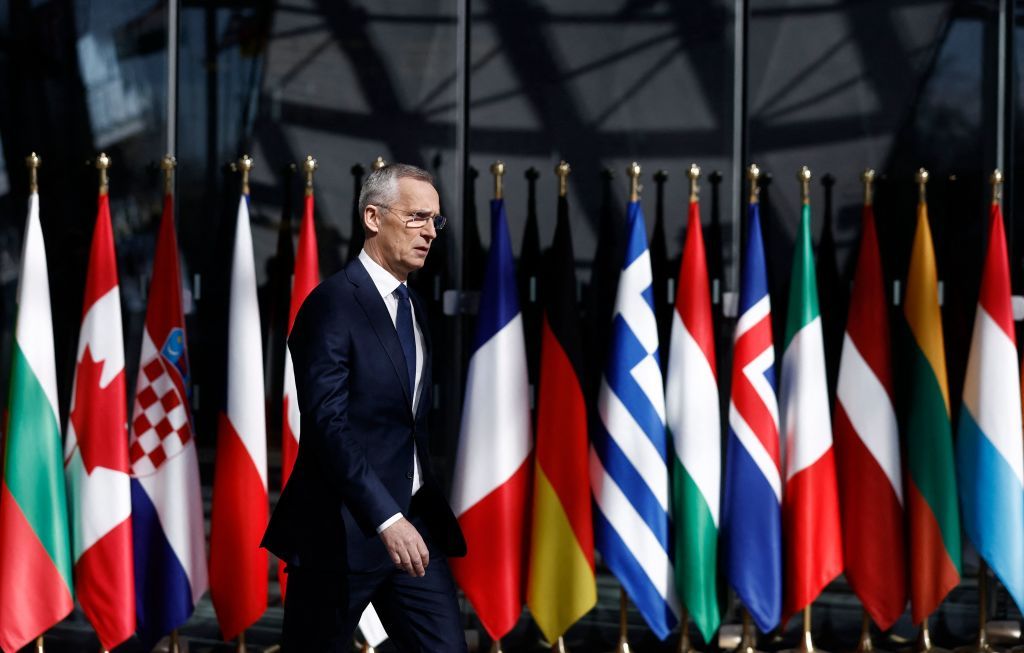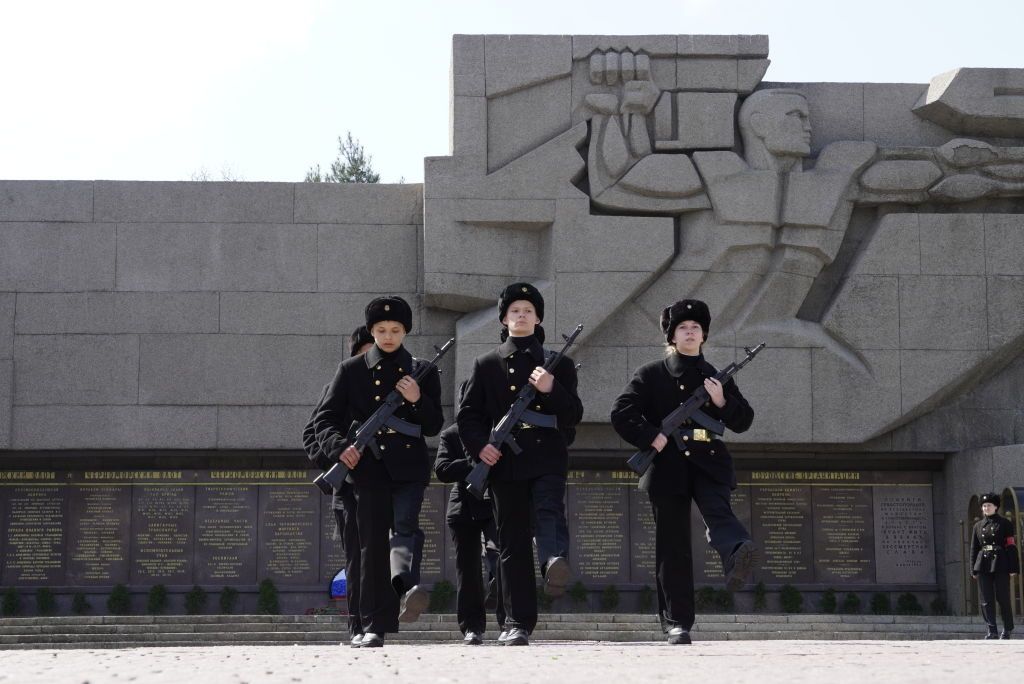Viktoriia Lapa: NATO should stop biding time on Ukrainian membership promise

With the NATO summit in Vilnius in sight, Ukrainians are placing high hopes on the political decisions made and security guarantees granted.
In a comment on April 21, NATO Secretary General Jens Stoltenberg said: “All NATO allies have agreed that Ukraine will become a member.” During meetings with Ukrainian Foreign Minister Dmytro Kuleba and EU diplomacy chief Josep Borrell later in February, Stoltenberg reiterated that long-term arrangements would need to be implemented only once the war ends.
While these statements sound like he’s reassuring Ukraine of its request to join NATO, which Kyiv presented on Sept. 30, 2022, there is still no official statement reflecting the Alliance’s position on Ukraine’s membership.
Such ambiguity on behalf of NATO further incentivizes Russia to continue its onslaught on Ukraine and possibly, in the future, intervene in other non-NATO countries, like Georgia and Moldova. There is no time to be vague on Ukraine’s future. NATO should clearly articulate Ukraine’s Euro-Atlantic trajectory after its victory over Russia.
Views on Ukraine’s relationship with NATO have changed and varied over time. For example, even some staunch advocates for neutrality, like Henry Kissinger, who opposed Ukraine’s membership in NATO to appease Russia, have changed their minds. In his speech at the World Economic Forum in early 2023, Kissinger said the “idea of a neutral Ukraine” is “no longer meaningful.”
Yet, many politicians and some academic circles still wrongly fear Ukraine’s NATO membership and completely miss the point of this global security calculation. Aside from undermining the importance of NATO as a security guarantor in Europe, their arguments simply misunderstand Russia’s motivations for its aggression against Ukraine.
For one thing, NATO’s expansion has never been the real cause of Russia’s invasion. One year of Russia’s war against Ukraine has already shown that Ukraine’s NATO membership is a false pretext for, rather than the root of, Moscow’s aggression. One merely has to look at Russian propagandists’ messages at the start of the full-scale war – they referred to Ukraine as a “non-existent” nation and made genocidal calls to erase anything of Ukrainian origin or cultural significance, rather than focusing on worries of Ukraine’s potential NATO membership that was a long way off anyway.
Putin and those who surround him share a perverted understanding of Ukrainian and Russian history, falsely claiming that the two are inseparable. However, it is this historical fake that brings about Putin’s maniac-type obsession to be remembered in Russian history books as the conqueror of all Slavic lands and the so-called unifier of these “brotherly” nations.

Second, Russia’s reaction to Finland and Sweden’s membership requests speaks for itself. Putin said their NATO bids do not threaten Russia – even though Finland shares a 1,340-kilometer border with Russia.
Giving a clear message to Ukraine from NATO would be fair in view of the commitments taken by some NATO member states before and would serve as a step toward a long-term security strategy in Europe.
As a matter of fact, two NATO member states – the U.K. and the U.S. – were among those who signed the Budapest Memorandum in 1994, where Russia assured Ukraine it would respect its independence and sovereignty according to existing borders in exchange for Ukraine giving up the world’s third-largest nuclear arsenal. Russia has bluntly violated its obligations multiple times by now, and NATO should realize that accepting Ukraine as its member is the only way to ensure security in Europe and restore justice.
The U.S. and the U.K., as some of the most powerful NATO members and nuclear states, bear a special responsibility for both European and global security. As co-signatories to the Budapest Memorandum, it is also in their interest to demonstrate that peacefully abandoning nuclear weapons is not a zero-sum game. To date, it does send a very different message.
From a legal perspective, there are no obstacles to Ukraine’s membership, apart from the end of Russia’s aggression and Ukraine’s control over its borders.
To be more precise, NATO’s open-door policy is based on Article 10 of the North Atlantic Treaty. Therefore, NATO membership is open to any “European state in a position to further the principles of this Treaty and to contribute to the security of the North Atlantic area ….”
There are also certain minimum political, military, and economic criteria that need to be met as prescribed in the 1995 Study on NATO Enlargement. For example, there is the requirement to uphold democracy, including tolerance of diversity, progress toward a market economy, and compatibility with NATO forces.
There is no doubt that, having acquired EU candidacy status and its present performance on the battlefield with the full integration of NATO assets, Ukraine is ready to join the Alliance as soon as it restores control over its borders.
Ukraine clearly declared its NATO aspirations by amending its constitution in 2019 and will follow this path until it acquires official membership. The one missing puzzle piece is an unambiguous message from NATO on its readiness to accept Ukraine. Being equivocal and slow simply gives more signals to Russia that its strategy of attacking sovereign countries pays off, as it does not fully change the behavior of Ukraine’s allies.
To sum up: There is no time for half-messages and half-promises. European governments should stop worrying about escalation and rather arm Ukraine now so that Russia will be stopped on the front line and demoralized. NATO should do its part not only through military support to Ukraine, but also through assuring a Ukrainian future in NATO. The time for being decisive has come.
Editor’s Note: The opinions expressed in the op-ed section are those of the authors and do not purport to reflect the views of the Kyiv Independent.













